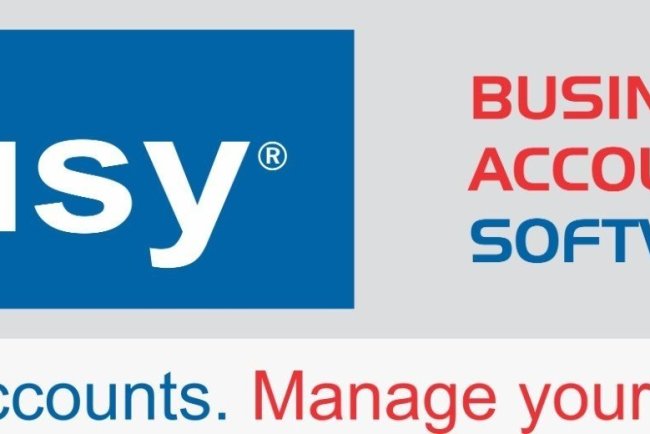Should Startups Do the Bookkeeping Themselves?
Navigate the critical decision every startup faces: handle bookkeeping in-house or outsource it? This comprehensive guide explores the pros and cons of DIY bookkeeping for startups, real-world examples, expert alternatives, and strategic recommendations. Discover when self-managed books work, when they don't, and how to make the smartest financial decision for your startup's growth and compliance needs.

Key Topics Covered:
- Why bookkeeping matters for startup success
- Complete pros and cons analysis of DIY bookkeeping
- Real startup examples and case studies
- Professional alternatives and hybrid approaches
- Expert recommendations based on startup stage and type
- Modern business tools for streamlined operations
Perfect for: Startup founders, entrepreneurs, small business owners, and anyone making early-stage financial decisions.
Should Startups Do the Bookkeeping Themselves?
Introduction
Picture this scenario: You're a startup founder who just secured your first round of funding. You're juggling product development, customer acquisition, team building, and investor relations. Then tax season arrives, and you realize your financial records are scattered across receipts, bank statements, and hastily created spreadsheets. Sound familiar?
This situation affects 82% of small businesses and startups, with poor financial management being the second leading cause of business failure after inadequate market demand. The question isn't whether bookkeeping matters—it absolutely does. The real question is whether startups should handle this critical function themselves or seek professional alternatives.
Bookkeeping involves systematically recording, organizing, and maintaining all financial transactions of a business. For startups, this includes tracking revenue, expenses, cash flow, tax obligations, and financial reporting. It's the foundation upon which all financial decisions, investor communications, and regulatory compliance rest.
The stakes couldn't be higher. Accurate bookkeeping enables startups to make informed decisions, secure additional funding, comply with tax regulations, and scale operations effectively. Poor bookkeeping, conversely, can lead to cash flow crises, compliance penalties, missed opportunities, and even business closure.
So should startups take on this responsibility themselves, or is it better left to professionals? The answer isn't universal—it depends on factors like founder expertise, business complexity, available resources, and growth stage. Let's examine this critical decision from every angle.
The Critical Importance of Bookkeeping for Startups
Financial Health and Decision Making
Bookkeeping serves as the central nervous system of startup financial health. Without accurate records, founders operate blindly, making decisions based on incomplete or incorrect information. Consider the startup that appeared profitable on paper but faced a cash flow crisis because they hadn't properly tracked accounts receivable and payable timing.
Proper bookkeeping enables startups to identify trends, seasonal patterns, and financial bottlenecks before they become critical problems. When Airbnb was starting, their meticulous expense tracking helped them identify which marketing channels provided the best return on investment, directly influencing their growth strategy.
Compliance and Legal Requirements
Startups must comply with various tax obligations, including income taxes, payroll taxes, sales taxes, and potentially franchise taxes. The IRS requires businesses to maintain detailed records supporting all income and expense claims. Poor record-keeping can result in penalties ranging from hundreds to thousands of dollars, money that cash-strapped startups can't afford to lose.
Beyond taxes, accurate bookkeeping supports compliance with employment laws, contract obligations, and industry-specific regulations. For startups in regulated industries like healthcare or fintech, proper financial documentation is essential for maintaining licenses and meeting regulatory requirements.
Investor Relations and Fundraising
Investors scrutinize financial records intensively during due diligence processes. Startups with clean, professional bookkeeping can complete fundraising rounds faster and command higher valuations. Conversely, messy or incomplete records can derail funding opportunities entirely.
Real-World Impact Examples
Buffer, the social media management platform, has always maintained transparent financial practices, publishing detailed revenue and expense breakdowns publicly. This transparency, built on solid bookkeeping foundations, has enhanced their credibility with customers, employees, and investors.
In contrast, the health startup Theranos famously collapsed partly due to financial misrepresentations that stemmed from inadequate financial controls and bookkeeping practices. While fraud was involved, better financial oversight might have prevented or exposed the problems earlier.
Many successful startups credit disciplined bookkeeping with their survival during challenging periods. When the 2008 financial crisis hit, startups with accurate cash flow projections and expense tracking were better positioned to make strategic cuts and survive the downturn.
Pros of Startups Doing Bookkeeping Themselves
Significant Cost Savings
For cash-strapped startups, the cost savings of DIY bookkeeping can be substantial. Professional bookkeeping services typically cost $200-$2,500 per month depending on business complexity and transaction volume. For an early-stage startup operating on a shoestring budget, these savings can extend runway and preserve cash for core business activities.
Many successful startups began with founders handling bookkeeping personally. Sara Blakely, founder of Spanx, managed her own books for years, allowing her to maintain complete financial control while minimizing expenses during the critical early growth phase.
Direct Financial Control and Awareness
When founders handle their own bookkeeping, they develop intimate knowledge of every financial aspect of their business. This hands-on involvement creates a deeper understanding of cash flow patterns, expense categories, and revenue streams that might otherwise remain abstract.
This direct involvement often leads to better financial discipline. Founders who personally record every expense tend to be more conscious about spending decisions, naturally implementing cost controls that might be overlooked when bookkeeping is outsourced.
Flexibility and Real-Time Insights
Self-managed bookkeeping allows for immediate access to financial information without waiting for external professionals to compile reports. This real-time visibility enables faster decision-making and more agile responses to changing business conditions.
Founders can customize their bookkeeping systems to capture metrics most relevant to their specific business model, industry, or investor requirements. This flexibility is particularly valuable for startups with unique revenue models or complex transaction structures.
Learning and Skill Development
Managing bookkeeping personally provides founders with valuable financial literacy that benefits them throughout their entrepreneurial journey. Understanding financial statements, cash flow management, and tax implications creates better business leaders and more credible fundraising candidates.
This knowledge proves invaluable when communicating with investors, lenders, or potential acquirers. Founders who understand their numbers can discuss financial performance confidently and make more persuasive cases for funding or partnerships.
Complete Privacy and Confidentiality
Early-stage startups often prefer to keep financial information completely internal. Self-managed bookkeeping ensures that sensitive financial data doesn't leave the organization, providing maximum confidentiality during vulnerable growth phases.
This control is particularly important for startups in competitive industries where financial performance data could provide strategic advantages to competitors if disclosed through third-party service providers.
Cons of Startups Doing Bookkeeping Themselves
Lack of Professional Expertise
Most startup founders lack formal accounting training, leading to fundamental errors in financial recording and reporting. These mistakes can have serious consequences, from incorrect tax filings to inaccurate investor reports that damage credibility and relationships.
Common errors include improper expense categorization, missed tax deductions, incorrect revenue recognition, and failure to maintain proper supporting documentation. These mistakes often compound over time, creating increasingly complex problems that become expensive to resolve.
Significant Time Investment
Bookkeeping requires substantial time investment, particularly for founders unfamiliar with accounting principles and software systems. Time spent on bookkeeping is time not spent on product development, customer acquisition, team building, or strategic planning—activities that directly drive business growth.
The time investment increases exponentially as businesses grow. What might take a few hours monthly for a simple business can become a full-time job as transaction volume increases and complexity grows with multiple revenue streams, employees, and operational locations.
Increased Error Risk and Compliance Issues
Without professional training, founders are prone to errors that can result in significant financial and legal consequences. Incorrect tax filings can trigger IRS audits, penalties, and interest charges that devastate startup cash flows. Payroll errors can result in employee relations problems and regulatory penalties.
These compliance risks are particularly dangerous for startups that can't afford legal battles, penalty payments, or reputation damage that might deter future investors or customers.
Opportunity Cost and Focus Dilution
Perhaps the most significant disadvantage is opportunity cost. Successful startups require intense focus on core competencies—product development, market fit, customer acquisition, and team building. Time spent on bookkeeping dilutes this focus and may slow progress on activities that directly drive growth and competitive advantage.
Many successful entrepreneurs recommend that founders should only perform tasks they alone can do, delegating everything else to specialists or systems. For most founders, bookkeeping falls clearly into the delegation category.
Scalability Limitations
DIY bookkeeping systems often break down as startups scale. What works for a single-founder business with minimal transactions becomes inadequate when managing multiple employees, vendors, customers, and complex financial arrangements.
The transition from DIY to professional bookkeeping becomes more difficult and expensive as businesses grow, often requiring extensive cleanup and system migration that could have been avoided with proper professional management from the beginning.
Real-World Consequences
Consider the startup founder who spent 20 hours weekly on bookkeeping instead of business development. Despite saving $1,000 monthly on professional services, they missed a major partnership opportunity worth hundreds of thousands in potential revenue because they lacked time for relationship building and strategic planning.
Another startup faced a $15,000 penalty for payroll tax errors that a professional service would have prevented. The penalty exceeded two years of professional bookkeeping costs while also creating cash flow stress during a critical growth phase.
Strategic Alternatives for Startup Bookkeeping
Professional Outsourcing Solutions
Modern bookkeeping services offer startups professional expertise without the overhead of full-time employees. Companies like Bench, Pilot, and QuickBooks Live provide monthly bookkeeping services starting around $200-$400 monthly, often including tax preparation and financial reporting.
These services typically assign dedicated bookkeepers familiar with startup challenges and requirements. They maintain professional standards, ensure compliance, and provide regular financial reports while allowing founders to focus on core business activities.
Cloud-Based Accounting Software
Technology has revolutionized bookkeeping accessibility through platforms like QuickBooks Online, Xero, and FreshBooks. These systems automate many traditional bookkeeping tasks, including bank reconciliation, invoice generation, expense tracking, and basic financial reporting.
Modern accounting software integrates with payment processors, e-commerce platforms, and banking systems to automatically import and categorize transactions. This automation reduces manual work while improving accuracy and real-time visibility.
Hybrid Approaches
Many startups successfully combine software automation with periodic professional oversight. This approach involves using accounting software for daily transactions while engaging professionals quarterly or annually for cleanup, tax preparation, and financial analysis.
This hybrid model provides cost savings compared to full professional services while ensuring accuracy and compliance through regular professional review and guidance.
Part-Time Professional Support
Startups can engage freelance bookkeepers or part-time professionals who provide expertise without full-time overhead. These professionals often work with multiple small businesses, providing cost-effective access to professional knowledge and experience.
Part-time professionals can establish proper systems and procedures, train internal staff, and provide ongoing oversight while allowing startups to maintain some internal control and cost management.
Industry-Specific Solutions
Startups in specialized industries may benefit from niche service providers familiar with industry-specific accounting requirements, regulations, and best practices. For example, SaaS startups might choose services specializing in subscription revenue recognition, while e-commerce businesses might prefer providers experienced with inventory management and multi-channel sales tracking.
Expert Recommendations for Startup Bookkeeping Decisions
Early-Stage Recommendations
For pre-revenue or minimal-revenue startups with simple business models, self-managed bookkeeping using quality accounting software can be appropriate temporarily. Focus should be on establishing good habits, proper categorization, and complete record-keeping rather than complex financial analysis.
However, even early-stage startups should establish relationships with accounting professionals for tax planning and compliance guidance. The cost of occasional professional consultation far outweighs the risk of compliance errors or missed optimization opportunities.
Growth-Stage Transitions
As startups approach $10,000 in monthly revenue or begin hiring employees, professional bookkeeping becomes increasingly valuable. The complexity of payroll management, sales tax compliance, and investor reporting typically exceeds most founders' expertise and available time.
The transition point varies by industry and founder background, but warning signs include spending more than 5-10 hours weekly on financial management, making repeated errors, or facing compliance challenges that create stress and distraction from core business activities.
Founder Background Considerations
Founders with financial backgrounds may successfully manage bookkeeping longer than those without such experience. However, even financially trained founders should consider whether their time is better invested in activities that leverage their unique skills and relationships rather than routine bookkeeping tasks.
Technical founders should particularly consider professional bookkeeping early, as their time is often better spent on product development, technical architecture, and engineering team management rather than financial record-keeping.
Business Model Complexity Factors
Simple service businesses with minimal inventory and straightforward revenue models can often manage DIY bookkeeping longer than complex businesses with multiple revenue streams, inventory management, or subscription models that require sophisticated revenue recognition.
Startups planning rapid scaling, multiple funding rounds, or eventual acquisition should establish professional bookkeeping early to ensure clean financial records that support these strategic objectives.
Risk Tolerance and Compliance Requirements
Startups in regulated industries or those with low risk tolerance should prioritize professional bookkeeping to ensure compliance and minimize legal exposure. The cost of professional services is minimal compared to potential regulatory penalties or legal complications from improper financial management.
Transitioning to Professional Business Growth Tools
Just as bookkeeping decisions significantly impact startup success, every growing business needs comprehensive tools to manage operations, engage customers, and drive sustainable growth. The same principles that make professional bookkeeping valuable—expertise, efficiency, compliance, and focus—apply to other critical business functions.
Modern startups require integrated solutions for sales management, customer relationship management, marketing automation, team development, and operational efficiency. Rather than building these capabilities from scratch or managing them with basic tools, successful startups invest in professional-grade systems that provide competitive advantages and support rapid scaling.
The decision between DIY solutions and professional tools becomes even more critical as startups grow and face increasing complexity in customer management, sales processes, marketing campaigns, and team coordination.
Transform Your Startup Operations with Gomsu Information Technologies
While proper bookkeeping provides the financial foundation for startup success, comprehensive business management requires additional tools and systems that support growth, efficiency, and competitive advantage.
Gomsu Information Technologies specializes in providing startups and growing businesses with enterprise-level capabilities through our integrated suite of business management solutions designed specifically for companies that want to scale efficiently and professionally.
Our Comprehensive Solution Portfolio
Point of Sale Systems: Streamline your sales operations with advanced POS technology that integrates inventory management, payment processing, customer data, and real-time analytics. Our solutions help you track performance, manage stock levels, process transactions efficiently, and gain insights into customer behavior and sales patterns.
Customer Relationship Management: Build stronger customer relationships and drive revenue growth with our comprehensive CRM platform. Track customer interactions across all touchpoints, manage sales pipelines, automate follow-up sequences, and gain actionable insights into customer behavior that inform strategic decisions and improve conversion rates.
Social Media Marketing: Expand your digital presence and reach target audiences through our professional social media marketing services. We help you create engaging content, build brand awareness, manage multi-platform campaigns, and convert social media engagement into measurable business results and customer acquisition.
Learning Management Systems: Invest in your team's growth and capabilities with our advanced LMS platform. Deliver structured training programs, track employee development progress, ensure regulatory compliance, and build organizational knowledge that supports long-term success and competitive advantage.
Business Process Automation: Eliminate manual tasks, reduce errors, and improve operational efficiency with our comprehensive automation solutions. From workflow automation to data processing and customer communication, we help you operate more efficiently and focus resources on strategic activities that drive growth.
Why Choose Gomsu Information Technologies
Our solutions are specifically designed for growing businesses that need professional capabilities without enterprise complexity or cost. We understand the unique challenges startups face and provide tools that scale with your growth while maintaining simplicity and usability.
We provide comprehensive implementation support, ongoing training, and optimization services to ensure your team maximizes the value of our solutions. Our integrated approach means all tools work together seamlessly, providing unified data, streamlined workflows, and comprehensive business insights.
Special Limited-Time Opportunity
We're currently offering significant discounts on our complete business solution packages for startups and growing businesses. This limited-time offer provides access to enterprise-level tools at startup-friendly pricing, helping you build competitive advantages while managing costs effectively.
Whether you need individual solutions or want to implement our comprehensive business management suite, this is an ideal opportunity to invest in tools that will support your growth and operational excellence.
Click here to know more and grab your discounted tools today with Gomsu Information Technologies.
Our team is ready to help you assess your needs, design appropriate solutions, and implement systems that drive measurable improvements in efficiency, customer satisfaction, and business growth.
Conclusion
The decision of whether startups should handle bookkeeping themselves depends on multiple factors including founder expertise, business complexity, available resources, and growth objectives. While DIY bookkeeping can provide cost savings and direct control for very early-stage startups, most growing businesses benefit from professional services that ensure accuracy, compliance, and allow founders to focus on core growth activities.
The key is making informed decisions based on realistic assessment of costs, benefits, and opportunity costs rather than simply choosing the cheapest option. Just as bookkeeping decisions impact financial health and compliance, choosing the right operational tools and systems affects every aspect of business performance and growth potential.
Success comes from investing in the right combination of professional services and business tools that provide competitive advantages while supporting sustainable growth and operational excellence.
If you found this blog helpful, please Like, Share, and Comment below.
Have any doubts or suggestions about startup financial management or business growth strategies? Let us know—we'd love to hear from you and continue the conversation.
Subscribe to our newsletter to never miss updates on business insights, growth strategies, and operational excellence that can transform your startup success.
What's Your Reaction?






















